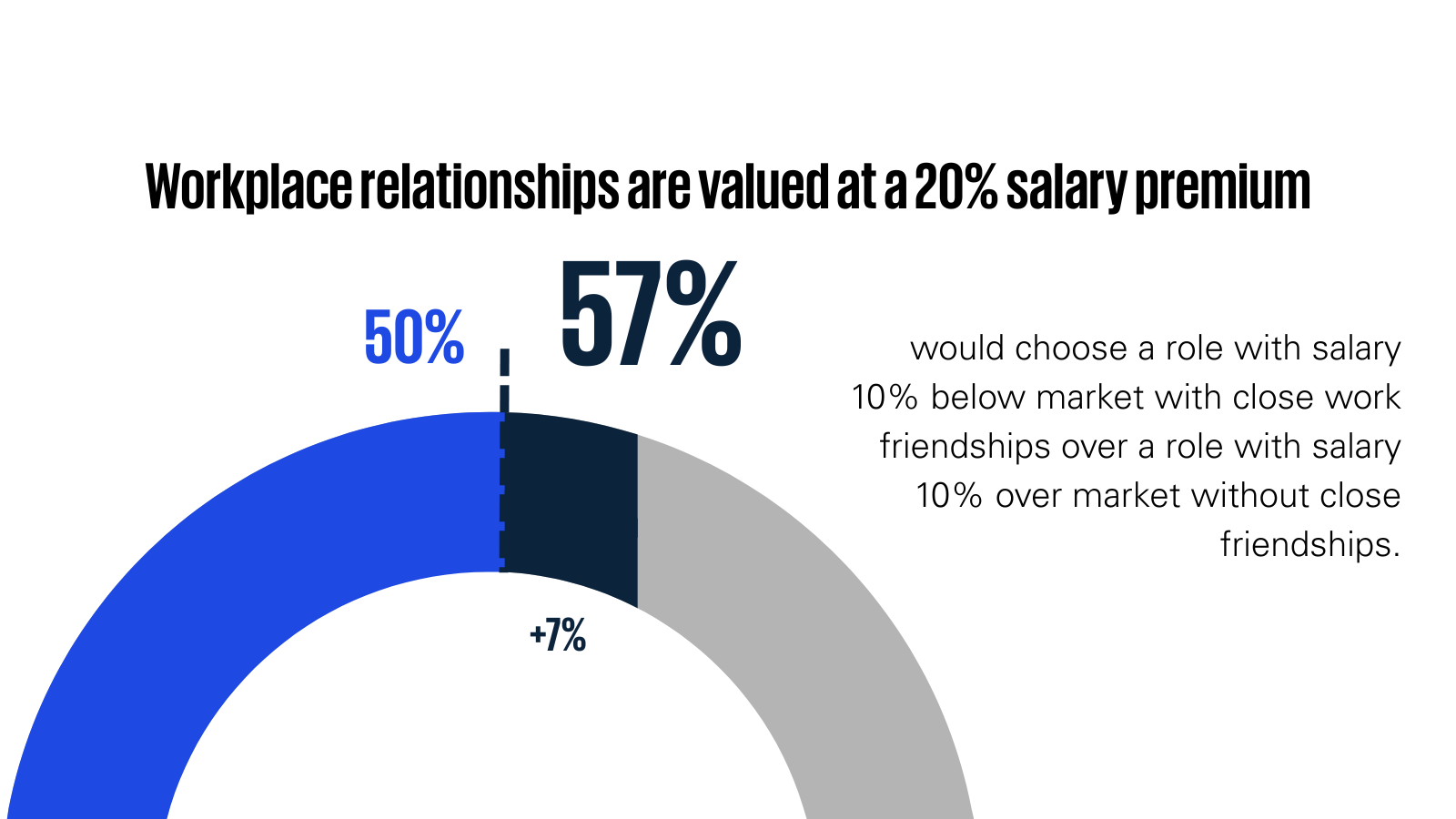American workers are rewriting the rules of what makes a job worthwhile, with close workplace friendships emerging as a workplace currency.
Torchia: “We're witnessing the rise of the friendship premium at work. Companies are discovering that in addition to strong compensation and benefits packages, the ability to facilitate authentic human connections is a valuable currency to attract and retain leading talent.”
- 57% of people would choose a role with salary 10% below market with close work friendships over a role with salary 10% over market without close friendships, effectively valuing workplace relationships at a 20% salary premium.
- Companies that demonstrate strong ratings across all five characteristics—salary, friends at work, work-life balance, learning opportunities and company culture—could increase their preference among potential employees by 28 points beyond the market average.
- Work-life balance is the strongest driver of job preference among all attributes. Additionally, the combination of strong work-life balance and frequent learning opportunities boosts an employer’s preference to 71% among potential employees.
- Close work friendships are increasing in importance, with 87% of employees saying they are "very important" (up 6 percentage points since November 2024).
- The top professional benefit respondents attribute to close work friendships is increased productivity and motivation to surpass job requirements.
- Among generations, 90% of Gen Z says close work friends are very important compared to 77% of Boomers.




